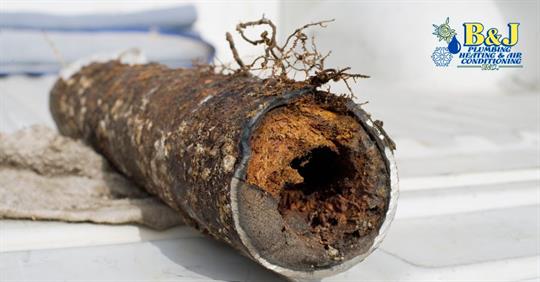As the crisp autumn air returns to North Carolina, many of us are preparing our homes for the new season. While you're raking leaves and swapping out your summer decor, don't forget about your plumbing. The fall and winter seasons can put extra stress on your drains, leading to inconvenient and messy clogs. Being proactive with drain maintenance is the key to preventing plumbing problems that could haunt you later.
The Most Common Culprits Behind Clogs
Understanding what causes clogs is the first step in preventing them. Many household clogs are the result of a buildup of everyday items that should never go down your drains.
FOG (Fats, Oils, and Grease): This is a huge one. While it may be liquid when you pour it down the kitchen sink, as it cools, it solidifies and clings to the inside of your pipes. Over time, it creates a sticky blockage that catches other debris.
Hair and Soap Scum: In bathrooms, hair is a major culprit. When hair combines with soap scum and other toiletries, it forms a nearly impenetrable clog in shower and sink drains.
"Flushable" Wipes and Feminine Hygiene Products: Despite what the packaging may say, these items do not break down in your plumbing system like toilet paper does. They are a leading cause of sewer line clogs.
Food Scraps: Even if you have a garbage disposal, large or fibrous food scraps like coffee grounds, eggshells, and potato peels can accumulate and create blockages.
Simple Tips for Preventing Clogs
Taking a few simple steps can save you a lot of hassle and expense down the road.
Be Mindful of What Goes Down the Drain: This is the most important tip. Remember the FOG rule for your kitchen sink and dispose of fats, oils, and grease in the trash. Use a hair strainer in your shower and bathtub drains to catch hair and soap scum before it becomes a problem.
Use Drains Regularly: Let water run in drains that aren't used often, like in a guest bathroom or laundry sink. Stagnant water can cause debris to settle and harden, leading to blockages.
Use Caution with Chemical Cleaners: While it may be tempting to reach for a chemical drain cleaner, these products can do more harm than good. The harsh chemicals can corrode your pipes over time, leading to leaks and more serious damage.
Try Natural Alternatives: For minor clogs or routine maintenance, a mixture of boiling water, baking soda, and vinegar can be effective. Pour boiling water down the drain, followed by a half-cup of baking soda. Let it sit for a few minutes, then pour in a cup of vinegar. The fizzing action can help dislodge minor buildups. Finish with another pot of boiling water.
When to Call a Pro
Sometimes, a clog is too stubborn for a DIY fix, or you may be dealing with a larger issue. If you notice signs of a persistent problem—like slow drains, gurgling sounds from your pipes, or foul odors—it's time to call in a professional from B & J Plumbing, Heating & Air Conditioning, Inc.. We have the tools and expertise to safely and effectively clear even the most challenging blockages without damaging your pipes. We can also inspect your plumbing system to identify and address underlying issues before they turn into major emergencies. We have the tools and expertise to tackle any plumbing issue, big or small.
Don't let a stubborn clog disrupt your fall festivities. If you're in the North Carolina area and need reliable drain cleaning, trust the experienced team at B & J Plumbing, Heating & Air Conditioning, Inc..
Call us today at (252) 512-5651 to schedule an appointment and enjoy a clog-free season.

